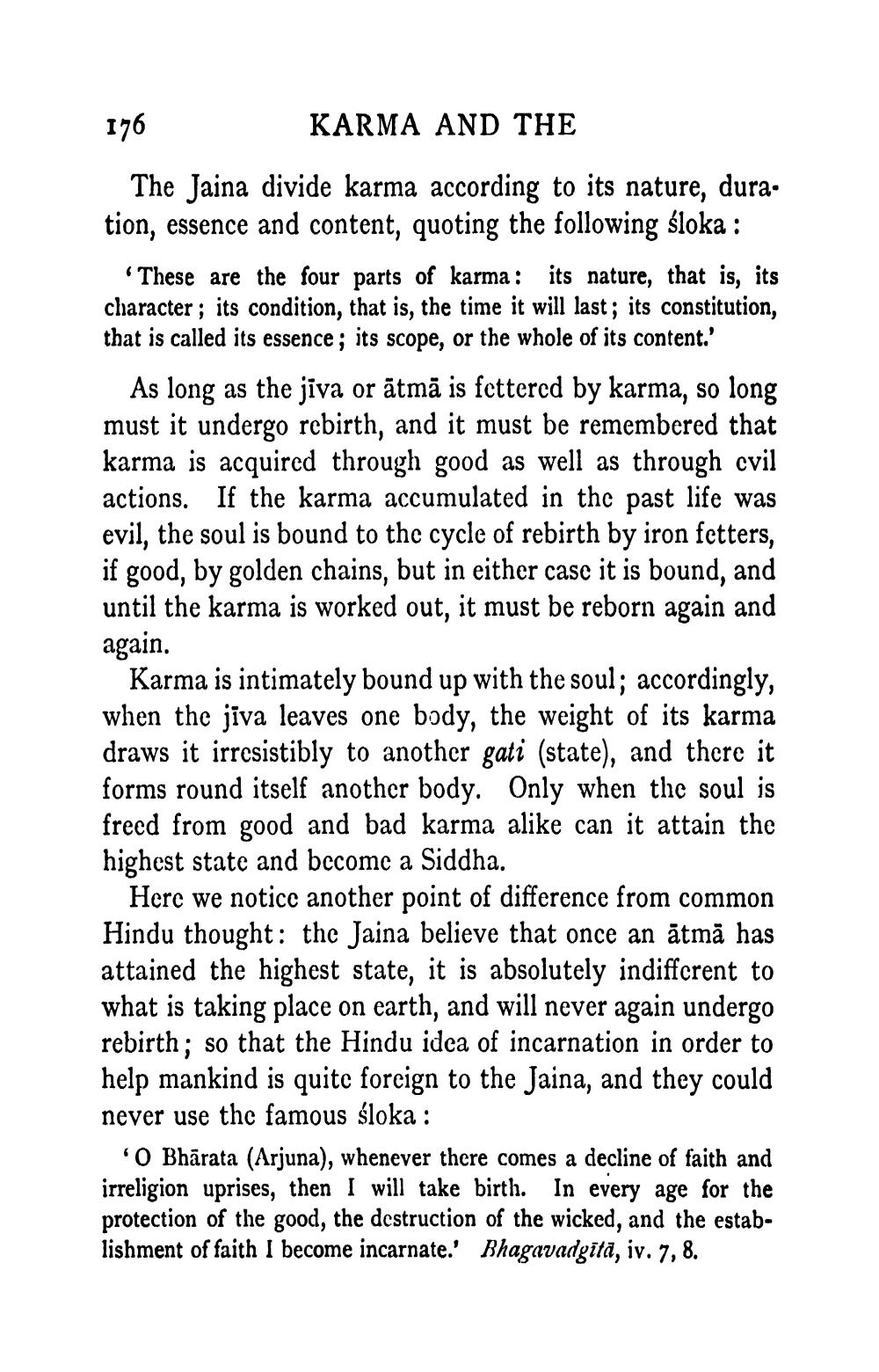________________
176
KARMA AND THE
The Jaina divide karma according to its nature, dura. tion, essence and content, quoting the following śloka :
These are the four parts of karma: its nature, that is, its character; its condition, that is, the time it will last; its constitution, that is called its essence; its scope, or the whole of its content.'
As long as the jiva or ātmā is fettered by karma, so long must it undergo rebirth, and it must be remembered that karma is acquired through good as well as through cvil actions. If the karma accumulated in the past life was evil, the soul is bound to the cycle of rebirth by iron fetters, if good, by golden chains, but in either case it is bound, and until the karma is worked out, it must be reborn again and again.
Karma is intimately bound up with the soul; accordingly, when the jiva leaves one body, the weight of its karma draws it irresistibly to another gati (state), and there it forms round itself another body. Only when the soul is freed from good and bad karma alike can it attain the highest state and become a Siddha.
Here we notice another point of difference from common Hindu thought: the Jaina believe that once an ātmā has attained the highest state, it is absolutely indifferent to what is taking place on earth, and will never again undergo rebirth; so that the Hindu idca of incarnation in order to help mankind is quite foreign to the Jaina, and they could never use the famous sloka :
O Bhārata (Arjuna), whenever there comes a decline of faith and irreligion uprises, then I will take birth. In every age for the protection of the good, the destruction of the wicked, and the establishment of faith I become incarnate.' Bhagavadgita, iv. 7, 8.




